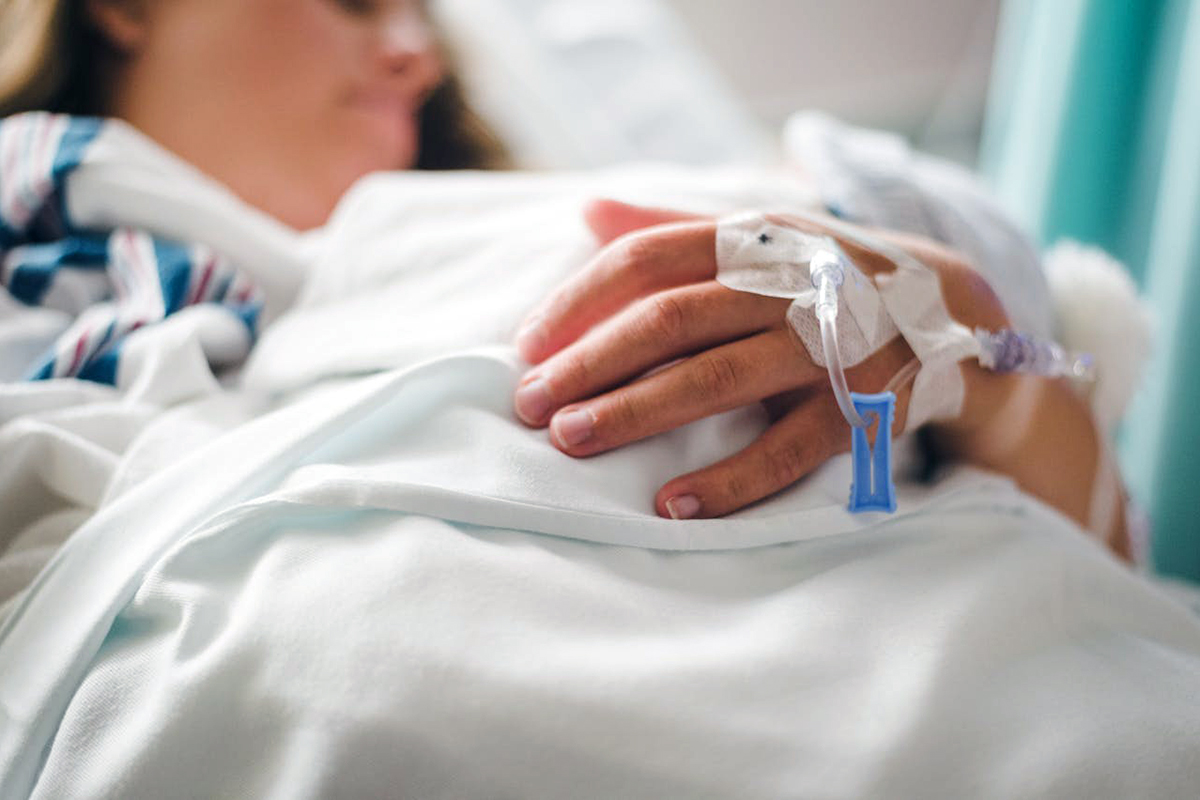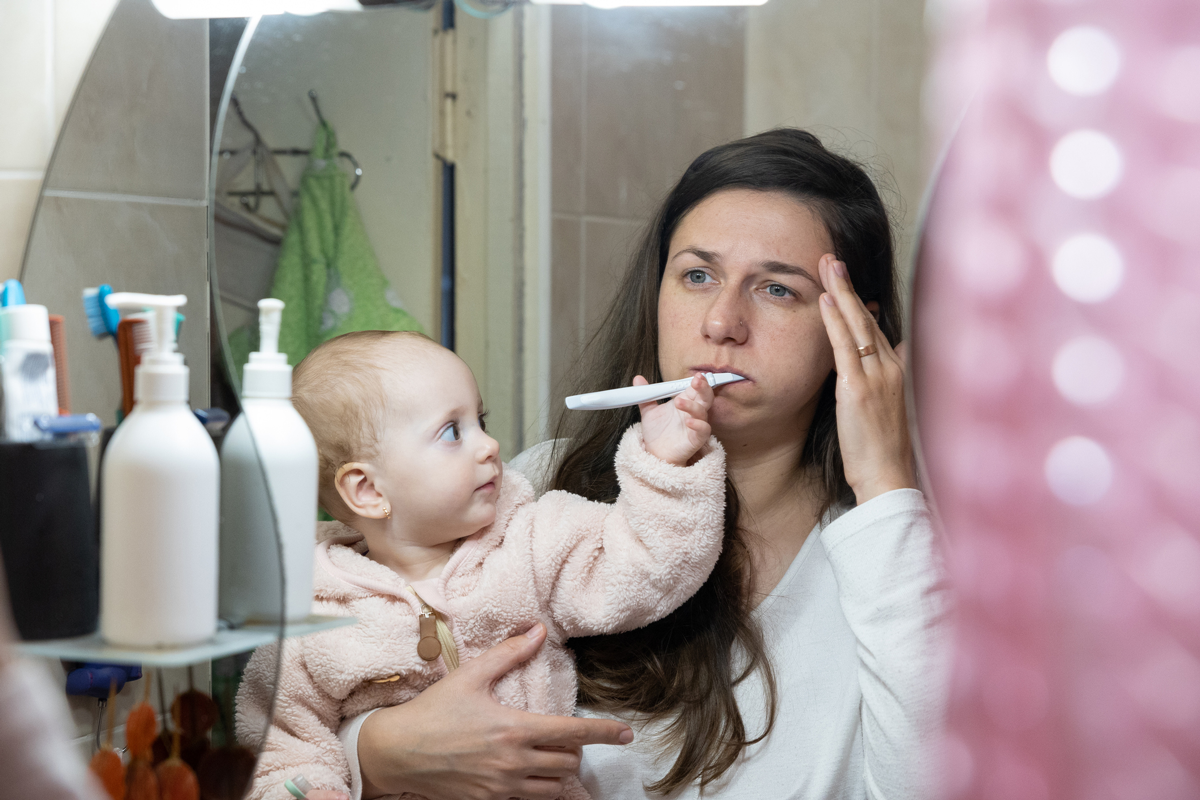I had planned a different post for today (homeschooling! Look for it in a week or so), but our inbox and DMs are full of questions about the newly approved drug for postpartum depression. What are the details there? What happens next? I’m going to start with a reader question, since it well captures the issues, and then I’ll explain.
Hi Emily! I’m currently 36 weeks pregnant with my second child and have just started hearing about a new postpartum depression treatment called zuranolone. I had horrible PPD after my first child — it began after an emergency C-section, went completely untreated (and got progressively worse) for 18 months; I experienced moments of psychosis, self-harm, etc.; and finally started getting treatment (talk therapy, EMDR, even pelvic floor physical therapy seemed to work magic for my spirit) around the time my daughter turned 2. I am feeling really excited about this current pregnancy (as I was for my first), but I’m also really concerned about getting totally blindsided by PPD again. From what I’ve read, the trial of zuranolone was only based on 200 women, and nothing I’ve read discusses the degrees of severity of PPD in trial participants (or many other specific factors). Still, I’m wondering if this is worth asking my doctor about. What have you heard about Zuranolone? I’d love your thought
—Worried about PPD for Round 2
Before I get into zuranolone specifically, I do want to address the question of recurrence here. Even putting aside a new drug, I’m confident that this reader can have a better experience in their next pregnancy. Why?
With postpartum depression and later pregnancies, there is a glass-half-full versus glass-half-empty approach. On one hand, postpartum depression does commonly (not always) recur. On the other hand, if it has happened before, you will not be blindsided. This drug is a new, exciting option, but we do have treatment for postpartum depression. It’s the same treatment as for regular depression — SSRIs and similar drugs work for many people and, I will note, generally can be taken while breastfeeding.
For less severe depression, non-pharmaceutical therapies can be effective (figuring out how to have better family sleep, having more support, talk therapy). Knowing the risk from a first pregnancy will increase the chance that you do these things. This is all to say: for this reader, a first line of defense is to be prepared, with a plan for both screening for PPD and for treatment as necessary. Note: This is one of the many topics covered in my forthcoming book The Unexpected, about navigating pregnancy after complications.
What is different about zuranolone?
To the new drug: Zuranolone is a newly developed drug that the FDA has just approved for the treatment of postpartum depression specifically. The drug isn’t an SSRI but a “positive allosteric modulator of synaptic and extrasynaptic γ-aminobutyric acid type A (GABA-A) receptors and neuroactive steroid.” Roughly speaking, it works through modulating neurotransmitters in the brain.
The structure of use for the drug is different from a traditional antidepressant. It is designed and evaluated for short-term use with fast results. The aim is 14 days of treatment.
Let’s look at the data behind this. There are several studies. The most recent one was published a few weeks ago in the American Journal of Psychiatry. The study is a typical high-quality drug study: a double-blind placebo-controlled trial in which one group took the medication and one took a placebo pill. This means that the people taking the pills did not know which they had been given.
The population in this study included women with a child under 1 year with relatively severe depression (a score of over 26 on the Hamilton Depression Rating Scale, which is high). Depression had to have onset during the third trimester of pregnancy or within four weeks postpartum. Importantly for some readers: the women in the study agreed to stop breastfeeding, at least during the period of treatment.
The authors evaluated depression scores at several time frames: three days, eight days, etc., all the way up to 45 days. Recall the drug is a 14-day course, so by day 15 they have ceased to take it. The graph below shows changes over time in scores on the depression scale; the changes are large overall.
What do we see in this graph? I take a few things.
First, both groups improved a lot, which I think is heartening. Even the placebo group depression scores improve almost immediately, which is what we call the “placebo effect.” Second, the group taking the medication improve more, and that happens almost at once. By day 3 they are lower on their scores, and that is true all the way through day 45, long after the medication has stopped.
This study isn’t alone; there is an earlier study, with a slightly lower dose, with similar results. The drug has some side effects — being tired and dizzy — and in 16% of the treatment group these were significant enough to lead to a dosage reduction. But only four participants in the treatment group (and two in the placebo group) discontinued the study due to side effects.
Overall, these results are impressive. This isn’t a magic bullet, but it’s exciting in part because it’s so different from what we have now, and so much more targeted to a moment.
What happens with zuranolone now?
The FDA has approved the drug for treatment of postpartum depression. The company also asked for approval for treatment of depression in a general population, but that indication was not approved at this stage, seemingly for efficacy reasons. The results in the general adult population were less impressive. At 15 days after treatment in postpartum depression, depression scores improved by 4 points more with the drug. In the overall depressed population, the improvement was only 1.8 points greater; significant, but not as notable.
Zuranolone will not be available for about another 90 days, since there is an FDA waiting period on this type of drug.
To go back to the question at the top: Is it something this reader should consider (if the timing worked)? Maybe! It is certainly worth a discussion with your doctor. The medication is approved for severe depression, not mild or moderate, and it hasn’t been tested in breastfeeding women. I hope follow-up on breastfeeding will be coming, but for now, that may be a barrier to some people. Having said all this — the promise is great, and I’m really excited and hopeful.
Two final notes.
First: There are a lot of structural aspects to childbearing in the U.S. that make it difficult (lack of paid leave, for example). Some of these structural issues contribute to postpartum depression. It is crucial that we do not lose sight of the need to fix those. This pill is a great option for treatment, but systemic change is needed.
Second: Much of the coverage has touted zuranolone as the first treatment for postpartum depression. I’m not sure this is very accurate, and I worry a little bit that it is misleading. This is the first medication that has been specifically approved for postpartum depression outside of a hospital setting. But that doesn’t mean there haven’t been other treatments available that we know work. Even if this drug doesn’t seem right for you, or doesn’t fit your level of depressive symptoms, be assured there is still a possibility of help.
Community Guidelines




















Log in